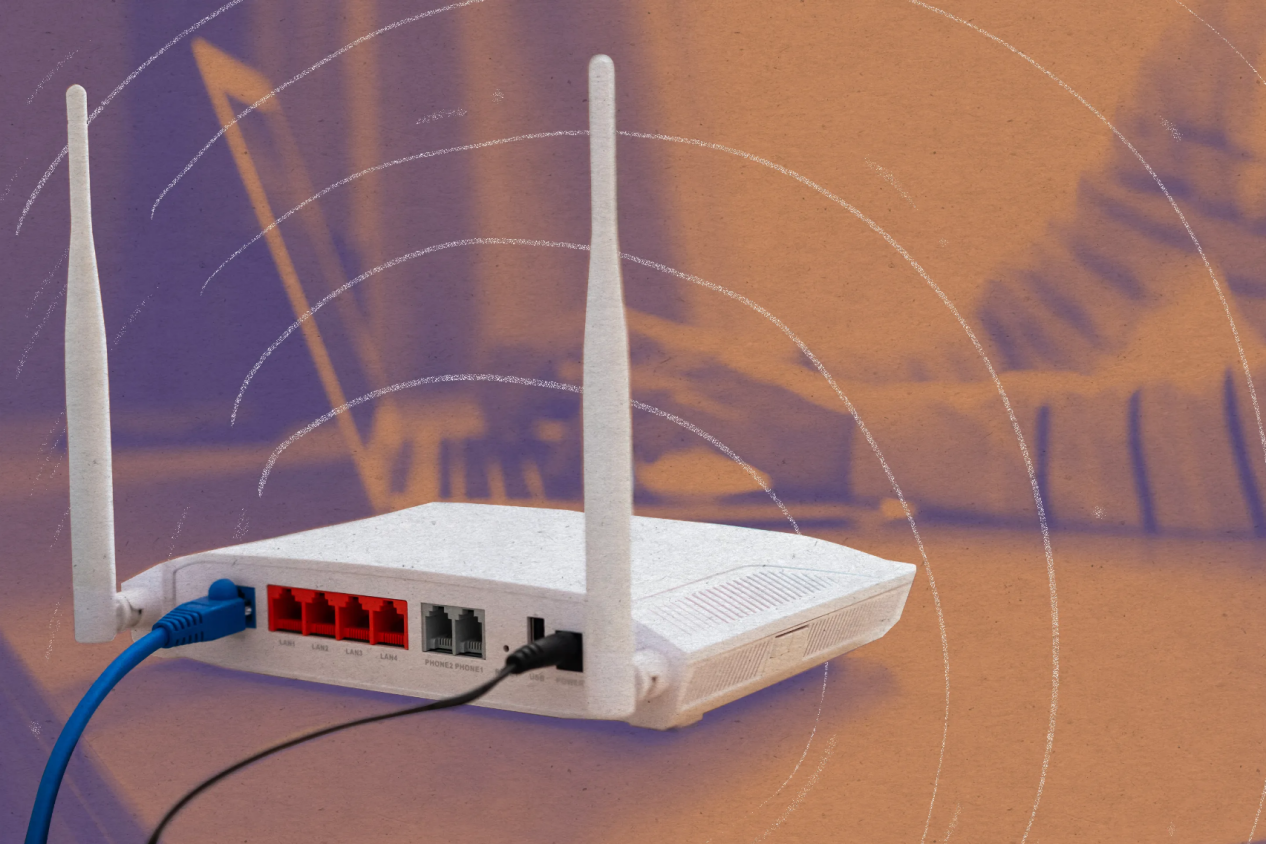Surprising Ways To Save Big On Internet Costs.
In today’s digital world, having reliable internet access is essential for staying connected with loved ones, managing daily tasks, and accessing valuable resources. For seniors, however, navigating the options for internet service and finding affordable plans can be overwhelming.
In today’s digital world, having reliable internet access is essential for staying connected with loved ones, managing daily tasks, and accessing valuable resources. For seniors, however, navigating the options for internet service and finding affordable plans can be overwhelming.

Internet access is as essential as having a phone or electricity — and no American senior should have to go without it, especially when so many programs exist to provide it at little or no cost. Government initiatives like the Lifeline Program , along with discounted options like Comcast Internet Essentials and AT&T Access , make it possible for eligible seniors to pay nothing — or close to nothing — for internet service. Staying connected to family, healthcare providers, and essential services shouldn’t come with a high monthly cost. By taking advantage of these programs, many seniors can enjoy reliable internet access without putting additional strain on their budget.
Seniors today should not be paying high monthly internet bills — and in many cases, they shouldn't be paying anything at all. There are clear steps to help secure low-cost or even no-cost internet service. First, apply for the federal Lifeline Program , which offers monthly discounts to low-income individuals, including many seniors on Social Security, Medicaid, or Supplemental Security Income (SSI). Lifeline benefits can reduce your internet bill by up to $9.25 each month — and sometimes more with additional state programs. Second, explore affordable internet plans from major providers. Programs like Comcast Internet Essentials and AT&T Access offer plans specifically for seniors or low-income households, often costing less than $10 per month — and when combined with Lifeline, your cost could drop to $0. Third, search using your ZIP code to uncover local deals and smaller providers that may offer additional discounts. Use tools like HighSpeedInternet.com or simply call local providers directly to ask about senior discounts. Fourth, look for bundled deals — sometimes combining phone, TV, and internet services can create big savings, especially if you're eligible for multiple promotions. Finally, always ask your current provider if they offer discounts for seniors, veterans, or low-income individuals. Many companies don't advertise these discounts openly but will apply them if you ask. By following these simple steps, seniors can avoid paying high internet bills, stay connected with friends, family, healthcare providers, and vital services — all without breaking their budget.
Other Free Internet Alternatives for Seniors
For seniors looking to avoid paying for home internet service, there are several free alternatives worth considering. One option is using your phone as a hotspot. Most smartphones allow you to share your mobile data connection with other devices like laptops and tablets. By activating the "mobile hotspot" feature through your phone’s settings, you can create a private WiFi network wherever you have cell service — perfect for light internet use like email, video calls, and browsing. Another great resource is WiFi Map , an online directory that lists thousands of locations across the country where free WiFi is available, including libraries, coffee shops, community centers, and even some public parks. Seniors can plan to use these free spots when they need heavier internet usage, such as downloading files or streaming videos. Finally, using public WiFi — offered in places like libraries, senior centers, malls, and fast food restaurants — can be an easy and completely free way to stay connected without any monthly cost.
Although public WiFi can sometimes be slower and less secure, sticking to trusted locations and using basic precautions like avoiding sensitive transactions can make it a safe and reliable solution. By tapping into these options, seniors can stay online, save money, and avoid paying for a home internet plan they may not even need full-time.
Affordable Internet Plans Designed for Seniors
Many internet providers now recognize the importance of keeping seniors connected and offer affordable plans designed specifically for them. These plans are often straightforward, with simple installations and no unnecessary add-ons. Seniors can enjoy features such as larger device interfaces, easy-to-use equipment, and customer support tailored to older users.
For an updated comparison of the best internet deals for seniors, visit CNET’s Best Internet Deals for Seniors . Another helpful resource is SeniorLiving.org’s Cheapest Internet Service for Seniors , which provides a list of budget-friendly options.
Find Internet Deals Based on Your ZIP Code
Depending on where you live, different internet deals and discount programs may be available based on your ZIP code. Some areas have exclusive offers through local providers or special regional initiatives. For example, seniors living in California may have access to discounted plans through programs like California LifeLine, while those in New York City can sometimes find city-sponsored affordable internet options. In rural areas, companies like Rise Broadband and Viasat offer low-cost wireless or satellite internet plans designed for underserved communities. It's important to check with providers in your specific ZIP code, as availability and pricing can vary widely. You can start by entering your ZIP code on provider websites or using tools like HighSpeedInternet.com to find the best deals in your area.
Government Programs for Low Cost and Discounted Internet
Government initiatives like the Lifeline program make internet services accessible for low-income seniors. Lifeline offers discounted monthly rates and, in some cases, free installation or devices. Combining these programs with provider-specific senior discounts can help significantly reduce internet costs.
In addition to the Lifeline program, seniors can also access free or nearly free internet by bundling services from multiple providers. For example, combining Lifeline assistance with affordable plans like Comcast’s Internet Essentials or T-Mobile’s low-income offerings can often bring the monthly cost down to $0. It’s worth exploring different combinations to maximize savings. You can start your application for Lifeline at GetInternet.gov . Additionally, providers like Comcast Internet Essentials offer programs that can be combined with government assistance to help seniors stay connected without breaking the bank.
Seniors can explore T-Mobile’s Project 10Million, which provides eligible households with a free mobile hotspot and 200GB of high-speed data per year for five years. While the program primarily targets K–12 students, seniors raising grandchildren or living in multigenerational households may qualify if a student in the home meets eligibility criteria such as participation in the National School Lunch Program, SNAP, Medicaid, or similar assistance programs. By combining Project 10Million with Lifeline benefits, seniors can potentially access no-cost internet services. To apply or learn more, visit T-Mobile’s website.
For more information on Lifeline and other programs, contact your local internet provider or explore government resources to see if you qualify.
Discounted and Low-Cost Internet Options
For seniors looking to reduce monthly expenses, several providers offer low-cost internet plans that deliver essential connectivity at a fraction of the price. These plans often waive setup fees and include free equipment rentals for qualifying individuals. Programs like Comcast’s Internet Essentials, AT&T’s Access Program, and Spectrum’s Internet Assist are particularly popular among seniors who meet income or government assistance criteria.
• Comcast Internet Essentials: Offers affordable rates with free installation and no long-term contracts.
• AT&T Access Program: Provides discounted internet access for eligible seniors enrolled in government programs.
• Spectrum Internet Assist: A low-cost option featuring no data caps and free modem rentals.
For a full list of discounts and their eligibility requirements, check out The Senior List’s Guide to 2025 Senior Discounts .
High-Speed Internet Without High Costs
With seniors increasingly relying on the internet for video calls, telehealth appointments, and entertainment, high-speed connectivity has become more important than ever. Fortunately, many providers offer affordable high-speed internet plans that cater to these needs. Providers such as T-Mobile, Verizon, and Cox Communications offer senior-specific plans with reliable speeds and reduced prices.
T-Mobile’s “Home Internet” and Verizon’s senior packages are particularly appealing, offering fast, consistent connectivity at competitive rates. For more details on high-speed internet options for seniors, explore SeniorLiving.org’s Internet Service Guide .
Wireless Internet: Convenient and Flexible
Wireless internet has emerged as a popular choice for seniors due to its ease of use and portability. Unlike traditional wired connections, wireless plans use mobile hotspots or routers, allowing seniors to stay connected anywhere in their home or even on the go. In most cities, wireless providers offer affordable packages that prioritize flexibility and simple setup.
For those interested in exploring wireless internet deals, USA Today’s Guide to Internet Options for Seniors provides an excellent starting point.
How to Choose the Best Internet Provider
Selecting the right internet provider involves comparing plans to ensure they align with your needs and budget. Here are some key factors to consider when evaluating options:
• Download Speeds: Determine whether the provider offers speeds that match your usage, such as streaming or video conferencing.
• Customer Support: Look for a provider with a reputation for reliable and accessible customer service.
• Fees and Contract Terms: Be aware of potential hidden fees and consider whether you prefer no-contract or long-term plans.
• Local Providers: Sometimes, smaller, local providers offer better deals or more personalized service.
Start your research with trusted resources like CNET or SeniorLiving.org to compare the top-rated providers for seniors.
Steps to Find the Perfect Internet Plan
Finding the right plan doesn’t have to be a challenge. Follow these steps to make the process easier:
• Assess Your Needs: Consider how you use the internet. Light browsing and emails require less speed than streaming or video calls.
• Ask About Senior Discounts: Many providers offer exclusive deals for seniors. Don’t hesitate to inquire directly about discounts or promotional offers.
• Evaluate Contract Terms: Check whether the plan includes long-term commitments or offers flexibility with month-to-month options.
• Test Customer Support: Look for providers with user-friendly support systems, especially if technical issues arise.
Taking these steps ensures you get a plan that meets your requirements without unnecessary features or hidden costs.
Additional Ways to Save on Internet Costs
Beyond finding the right plan, there are other ways to reduce your monthly internet expenses:
• Bundle Services: Combine internet with TV or phone services to take advantage of discounts on bundled packages.
• Set Up Auto-Pay: Many providers offer a small discount for automatic payments, ensuring bills are paid on time.
• Negotiate Rates: Don’t be afraid to renegotiate with your provider after your initial contract ends. Often, companies are willing to offer discounts to retain customers.
These strategies can help maximize your savings while ensuring reliable service.
Conclusion: Staying Connected Made Easy
Seniors no longer have to struggle with high internet costs or complicated setups. With a variety of affordable plans, senior discounts, and government assistance programs, staying connected has never been easier. By exploring resources like CNET and SeniorLiving.org , seniors can find the perfect plan tailored to their needs and budget. With the right internet plan, seniors can stay informed, entertained, and connected to their loved ones with ease.







